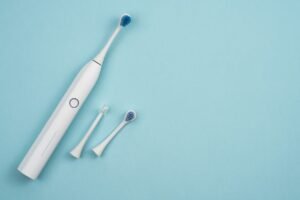Supplements for a Healthy Pregnancy

Pregnancy is a transformative and crucial period in a woman’s life, and maintaining optimal health is paramount for both the mother and the developing baby. While a well-balanced diet is fundamental, certain nutrients may be challenging to obtain in sufficient quantities through food alone. This is where supplements play a crucial role in ensuring a healthy and complication-free pregnancy. In this article, we will explore the top supplements recommended for pregnant women to support their well-being and the optimal development of their babies.
Folic Acid:
One of the most critical supplements during pregnancy is folic acid. This B-vitamin is crucial for the early development of the baby’s neural tube, which eventually forms the brain and spinal cord. Adequate folic acid intake in the early stages of pregnancy can significantly reduce the risk of neural tube defects. Health experts generally recommend taking 400 to 800 micrograms of folic acid daily, ideally starting before conception.
Iron:
Iron is vital for preventing anemia, a condition characterized by a deficiency of red blood cells. During pregnancy, a woman’s blood volume increases, and iron needs also rise to support the growing baby and placenta. Iron supplements can help prevent iron-deficiency anemia, which may lead to fatigue and complications during childbirth. However, it’s essential to consult with a healthcare provider to determine the right dosage, as excessive iron intake can have adverse effects.
Calcium:
Calcium is crucial for the development of the baby’s bones, teeth, and muscles. If the mother’s calcium intake is insufficient, the baby will draw calcium from the mother’s bones, potentially leading to weakened bone density. Dairy products, leafy greens, and fortified plant-based milk are good dietary sources of calcium, but supplements may be recommended if dietary intake is insufficient.
Omega-3 Fatty Acids:
Omega-3 fatty acids, particularly DHA (docosahexaenoic acid), are essential for the development of the baby’s brain and eyes. These healthy fats also support the mother’s cardiovascular health. Omega-3s are commonly found in fatty fish like salmon and trout, but pregnant women should be cautious about mercury content. Omega-3 supplements derived from algae are a safe and suitable alternative for those who avoid fish.
Vitamin D:
Vitamin D is crucial for the absorption of calcium and the development of strong bones and teeth in both the mother and baby. While sunlight is a natural source of vitamin D, many people may have difficulty obtaining sufficient levels, especially during the winter or if they live in areas with limited sunlight. Vitamin D supplements can help ensure adequate levels, and the recommended dosage may vary based on individual circumstances.
Vitamin B12:
Vitamin B12 is essential for the development of the baby’s nervous system. It is primarily found in animal products, so pregnant women following a vegetarian or vegan diet may need to supplement. A deficiency in vitamin B12 can lead to neurological issues for both the mother and the baby.
While supplements can be beneficial during pregnancy, it’s crucial to remember that they should complement a well-balanced diet, not replace it. Before starting any supplement regimen, it’s advisable for pregnant women to consult with their healthcare provider to determine their specific nutritional needs. Each pregnancy is unique, and individual factors such as age, diet, and pre-existing health conditions can influence the necessary supplements. A personalized approach, coupled with regular prenatal check-ups, will contribute to a healthy and successful pregnancy journey.
The information provided in this article is for general informational purposes only and is not intended as medical advice. Always consult with a qualified healthcare professional before making any decisions regarding your health or the health of your baby, especially during pregnancy.
Pregnancy is a unique and individual experience, and nutritional needs can vary. The recommendations outlined in this article are general in nature and may not be suitable for everyone. Different pregnancies, health conditions, and dietary preferences can impact the appropriateness of certain supplements.
Furthermore, individual responses to supplements can vary, and what works well for one person may not be suitable for another. It’s essential to consider personal health history, allergies, and any existing medical conditions when determining the appropriateness of supplements.
Any reliance you place on the information in this article is at your own risk. While efforts have been made to provide accurate and up-to-date information, developments in medical research may necessitate updates or changes to recommendations.
This article does not endorse or promote specific brands of supplements, and it is not a substitute for professional medical advice, diagnosis, or treatment. Always seek the advice of your physician or another qualified healthcare provider with any questions you may have regarding a medical condition.





